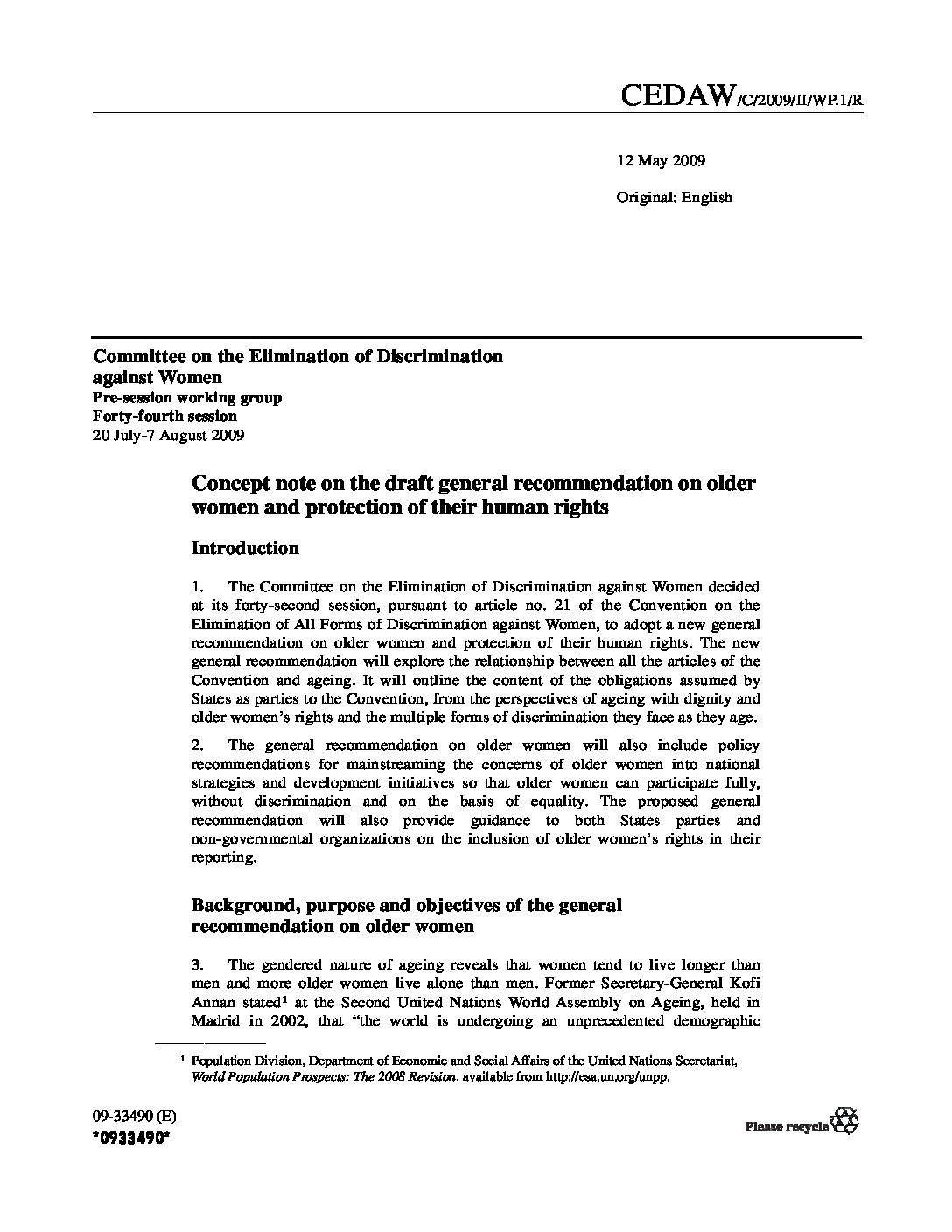Concept note on the draft general recommendation on older women and protection of their human rights
somdn_product_pageRelated products
NGLS interviews Dr. Astrid Stuckelberger, Chair of the UN NGO Committee on Ageing Geneva and President of the Geneva International Network on Ageing
NGLS interviews Dr. Astrid Stuckelberger, Chair of the UN NGO Committee on
Ageing Geneva and President of the Geneva International Network on Ageing
On the occasion of the eighteenth session of the Human Rights Council and the 20th annual celebration of the UN International Day of Older Persons (1 October), a High- level Panel on Older Women and the Right to Health was held on 26 September in Geneva. The Panel was co-sponsored by the UN NGO Committee on the Status of Women Geneva and a number of other civil society organizations including the Geneva International Network on Ageing; the Women’s UN Report Network (WUNRN); Help Age International; and the International Disability Alliance.
Bioethics Caribe
- Abstracts
- Ethics, Equality & Stigma – Some Issues of Relevance to the English-Speaking Caribbean
- The Changing Face of Stigma: Social Taboos and Ethics
- Disclosure of STD infection to sex partners in Louisiana
- Ethics and Inequalities Associated with Caribbean Impacts of Climate Change
- The Ethical Challenge Posed by Stigma to Public Health Promotion Campaigns and the Health- Care Professional Patient Interaction
- Human Rights: A Framework for Confronting Stigma in the Caribbean
- Ethics, Equality and Stigma: a Canadian Perspective
- Ethical dilemmas of critically and terminally ill HIV/AIDS patients in the ICU
«УМНЫЕ ВСЕХ СТРАН, ОБЪЕДИНЯЙТЕСЬ!»
В начале ХХI века Президент России В.В.Путин, выступая в Евразийском Национальном Гуманитарном Институте им. Льва Гумилева в Астане, обратился к участникам церемонии открытия Года России в Казахстане со словами: «Умные всех стран, объединяйтесь!»
В ответ на призыв Президента В.В.Путина начал свою работу Интеллектуальный Альянс Цивилизаций (ИАЦ) – группа партнерских неправительственных организаций, созданных по инициативе ИАЦ России в Канаде, Германии и Швейцарии. Об Альянсе цивилизаций рассказывают идейный вдохновитель, инициатор создания и Президент ИАЦ, кандидат экономических наук Тамара Владимировна Лавровская и Вице-президент ИАЦ, начальник Отдела философии науки и техники Института философии РАН Владимир Иванович Аршинов
SGBEbulletinSSEB – Enhancement-Medizin: es braucht eine kritische Diskussion
Enhancement-Medizin: es braucht eine kritische Diskussion
Neue Rezepte gegen den Alterungsprozess
Die Menschen werden heute so alt wie nie zuvor. Trotzdem fühlen sich viele deutlich jünger, als ihr biologisches Alter vermuten liesse, und sie möchten auch in den kommenden Lebensjahren möglichst gesund und
t bleiben. Manche setzen dabei auf Anti-Aging-Medizin. Doch was kann diese neue Disziplin überhaupt?








